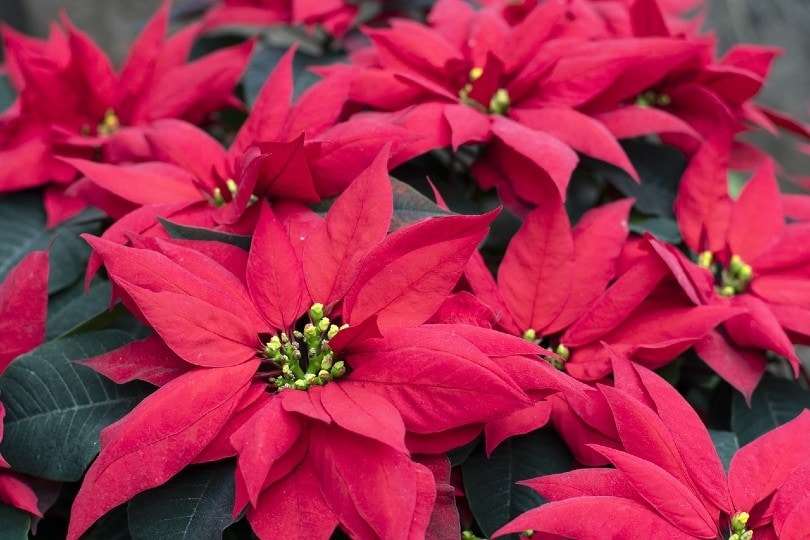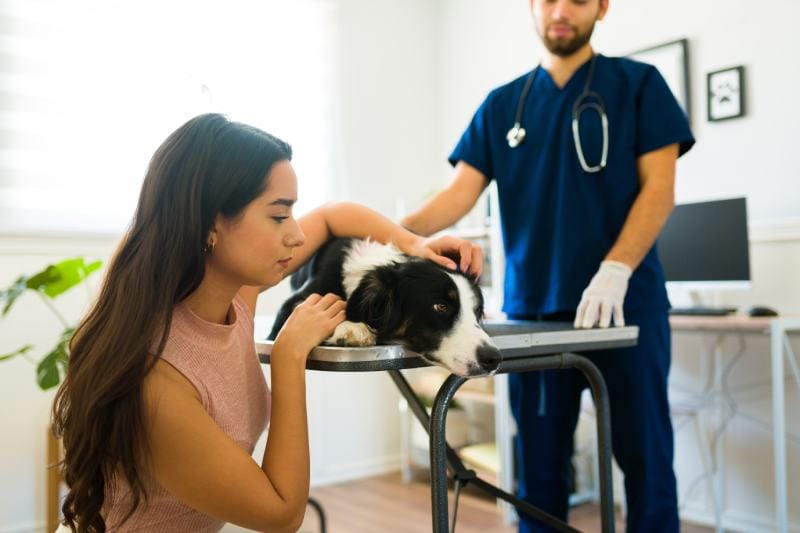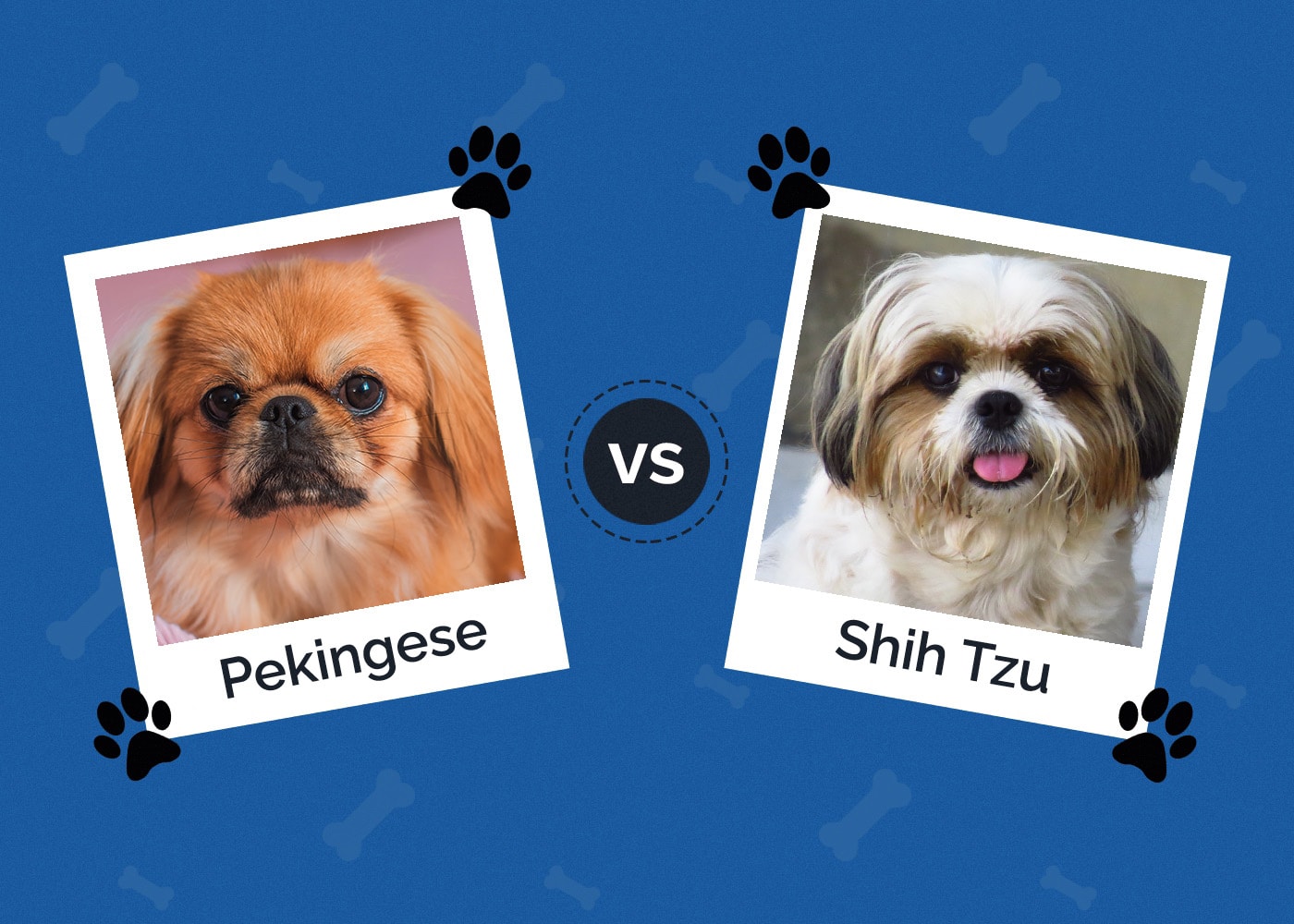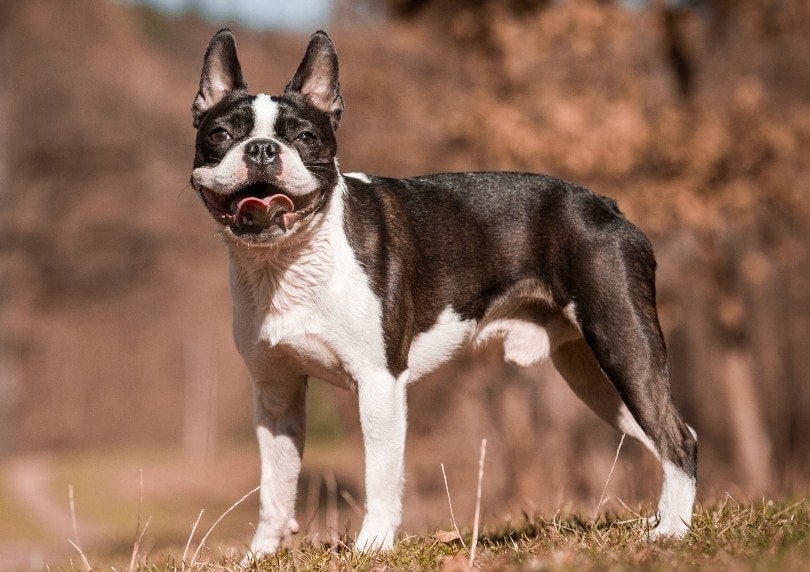Are Poinsettias Poisonous to Dogs? Vet-Reviewed Signs of Toxicity
By Ashley Bates
Updated on

Poinsettias are absolutely stunning flowers that many plant enthusiasts love. Especially during the holidays, these gorgeous flowers line department stores and plant shops. However, like many plants, poinsettias are toxic to our beloved pets. If you choose to bring this plant into your home, it’s imperative that you take precautions to keep your pet away—especially if they love to nibble on your houseplants.
What Is a Poinsettia?
A poinsettia is a very common Christmas flower that symbolizes goodwill and community. Often, folks pick up the poinsettia at the department store to add a little color and might not know about the plant’s overall symbolism. Typically, in religion, the poinsettia represents the Star of Bethlehem, and the red collar symbolizes the blood of Jesus.

Are Poinsettias Toxic to Dogs?
It seems you see warnings everywhere about how dangerous poinsettias are to our pets. But just how much of that is true? According to experts, poinsettias are toxic to pets, but they aren’t quite as dangerous as people make them out to be.
For example, if your dog eats a few leaves or flowers off of your poinsettia, it can cause some gastrointestinal upset, but that’s generally all you’ll notice. On the toxicity scale, poinsettias are considered mildly toxic to dogs.
Poinsettias have caused discomfort in pets at most—never death.
Signs of Toxicity in Pets
Poinsettias are mildly toxic to dogs, meaning they can experience a variety of issues, mostly affecting the mouth and gastrointestinal system. However, if your dog has some of the fluid from the flower on their fur or skin, it can also cause localized skin irritation.
- Nausea
- Drooling
- Vomiting
- Diarrhea
Most of these symptoms can be managed at home. However, if you have any concerns about the amount your pet has eaten, never hesitate to seek medical attention.
What to Do If Your Dog Eats a Poinsettia
If your dog eats a poinsettia, aside from some general discomfort, they should be perfectly fine. Luckily, poinsettias are relatively bitter, and your dog likely won’t enjoy the taste once they have it in their mouth.
However, if your dog indulges in the whole plant, they might require veterinary treatment. If you have any questions, call your vet right away or pet poison control. Your doctor may be able to prescribe anti-nausea medications or other treatments based on what issues your dog is experiencing.

Keeping Your Dog Away From Your Poinsettias
Ultimately, it’s a lot more likely that your dog will do much more damage to your poinsettia plants than the reverse. But we still don’t want to see our dogs experience any discomfort. So, this holiday season, try to keep your dogs away from your poinsettia plants as much as you can.
Place the plant on a shelf, high stand, or in an inaccessible room. You can even use gates, if needed, to keep them away from poinsettias and even other potentially dangerous holiday goodies (like bulbs, lights, etc.).
Conclusion
Poinsettias are mildly toxic to dogs. If your dog ingests a poinsettia, you can expect some general discomfort ranging from mild to moderate. Usually, you can treat the issue at home by making your pet comfortable and letting the gastrointestinal upset pass.
If you have any concerns about your dog eating a poinsettia, contact emergency control your veterinarian for further guidance. They will give you a detailed list of things to expect and when to take them in.
Featured Image Credit: F Grao, Shutterstock












